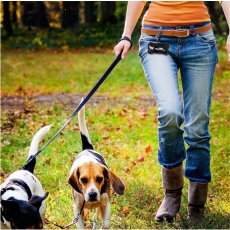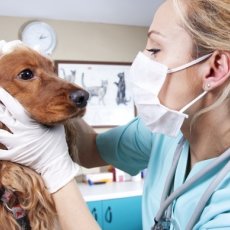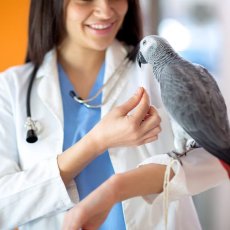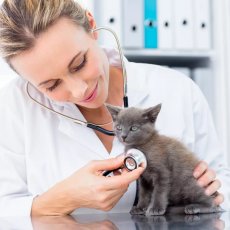annunci
Home Veterinary Services in Central London
Home Veterinary Services in Central London
We are excited to announce that from 25th January, Village Vet St John’s Wood will be offering home visits in the local area. We know that however stress-free we try to make the practice, some of our furry family members would just prefer to be in their own space, so we have decided to come to them!
One of our vets, Francesca or Kelly will come to your home with our student nurse, Chris, and will be able to offer the following services:
- Health Checks
- Vaccinations
- Flea and Worming
- Microchipping
- Blood pressure checks
- Blood tests
- Euthanasia
Please call us at: 020 7372 7077
Health Examinations
15 Minutes that could save your pets life
Village Vet recommends that your pet has a 15-minute health check at least once a year (but ideally every 6 months). These are part of a routine vaccination appointment but also essential for pets who have not seen us for a while.
Animals are not always very good at telling us when they are poorly. Furthermore, an animal that is in pain often becomes quiet rather than obviously eliciting signs of distress. It is for these reasons that your pet should have a regular veterinary examination – this will help detect abnormalities or conditions that might otherwise be missed by even the most experienced of pet owners. Most likely we can give your pet a clean bill of health, allowing you to rest easy in the knowledge that your pet is fit and healthy. But otherwise, we can intervene early, saving your pet undue stress and your extra expense.
During your pet’s health examination, we can discuss all areas of preventative health care including:
- Flea prevention and worm treatment
- Dental care
- Vaccination
- Nutrition
Just 15 minutes twice a year could save your pet from much pain and discomfort, and may even save its life.
Vaccinations
Dogs, Cats and Rabbits are susceptible to a range of dangerous infectious diseases. Fortunately, we can immunise against most of these diseases making cases and epidemics rare but it is still very important to make sure your pet is fully vaccinated as the diseases are still a constant threat.
We don’t want to give vaccines unnecessarily so we tailor vaccination courses according to your pet’s age, lifestyle and certain other risk factors. Unlike immunisation in people, it is essential to get your pet vaccinated annually as some of the vaccines only last a year. We send all our clients regular reminders through the post, text or e-mail when vaccines are due to help your pet stay protected
Cats
Cats are vaccinated against viruses that cause severe flu-like symptoms, Feline Leukaemia virus – a cancer-inducing disease of cats – and against Panleukopaenia virus – a fatal gastroenteritis. In kittens the initial course of two vaccinations is administered at 8 and 11 weeks.
Dogs
Dogs are vaccinated against Distemper, Hepatitis, Pavro virus and Leptospirosis. A vaccine for Kennel Cough is recommended in high risk situations such as those experienced when taking your dog to kennels and shows. In puppies the initial course of two vaccinations is administered at 8 and 10 weeks of age. This allows early socialization under controlled low-risk situations from 9 weeks of age and puppies are ready to face the world at 12 weeks.
Rabies vaccination, for obtaining a Pet Passport, is required at least every two years although, when visiting certain countries, annual vaccination is needed – ask your local Village Vet for more advice.
Rabbits
Rabbits should be vaccinated against both myxomatosis and VHD (viral haemorrhagic disease). Rabbits can be vaccinated from 6 weeks of age. The VHD vaccine is given 2 weeks after the myxomatosis vaccine.
Dental Care
Dental disease is the most common health problem diagnosed in cats and dogs. However, it is still underdiagnosed and under treated. This is exacerbated by a “suffer in silence” approach which tends to be adopted by our pets. However, frequently these problems are painful and if identified and appropriate treatment instigated can be readily made pain free again.
What you can do for your Pet’s teeth.
So what can you do to prevent or treat dental disease? Monitor for any abnormal signs, including bad breath, change in chewing behaviour or sensitivity around the mouth. Bring your pet in for a dental check. Discuss an appropriate home care regime with your vet, tailored to your pet’s specific needs.
Treatment
A regular dental check is highly recommended. We (owners and your veterinary team) are our pet’s advocates. They rely on us to notice signs of disease and pain and act accordingly. Regular check ups and timely treatment can help to prevent chronic pain and infection and the need for extensive oral surgery. Don’t delay, book your pet a dental check up appointment now.
Flea Prevention
Fleas are very undesirable parasites which feed off our domestic pets – their natural hosts. When environmental conditions are optimal the flea population will grow at a very rapid pace and, once you have a flea infestation, it is very difficult to get rid of the problem.
Fleas can cause enormous problems to pets by spreading worms and other diseases causing itchiness, irritation and in some cases resulting in severe allergic reactions. Whilst fleas feed on our pets, they live and breed in the furnishing of the house so once established an infestation is hard to eliminate
At Village Vet we determine the best flea programme tailored specifically to your pet and its lifestyle. We have a wide range of excellent products to suit different pets and owners. In general, we recommend a spot-on product which is applied to the back of the neck on a monthly basis. Unlike similar drugs, this product has the added advantage of providing protection against roundworms and lungworm.
Alternatively, we can provide tablets that control and kill fleas, an injection for your cat that provides 6 months protection and sprays for your pet, carpets and floorboards.
To achieve optimal flea control, preventive treatment should be provided throughout the year. If you are unfortunate enough to get a flea infestation on your pet and in your home we are always available to give thorough advice on how to eliminate the problem effectively and safely.
Worm Prevention
Regular worming will keep your pet parasite-free. And your children safe.
Cats and dogs pick up worms from their mothers, other pets, ingesting slugs and snails and by coming into contact with the faeces of other animals. There are several types of worms that will cause disease ranging from weight loss to severe life-threatening diarrhoea. Roundworm and some types of tapeworm can be passed on to people, particularly children, and can cause disease and even blindness.
To offer the most comprehensive protection for cats and dogs we generally recommend:
- Monthly treatment with a de-worming tablet up to 6 months of age
- Subsequent de-worming every 3 months in adults
These worming drugs are only available from veterinary surgeons and they are far more effective than those available at pet shops and supermarkets.
If you have any problems in administering these products we are more than happy to do this for you. There may be certain circumstances where we would adjust this regime to suit particular requirements of individual pets and their owners.
Microchipping
Every year, more than 6,000 pets go missing. Here’s how to make sure yours comes back.
There’s no guarantee that a collar and tag will stay with your pet but there are no such worries with a microchip. A microchip is a tiny electronic chip (the size of a grain of rice) which is injected into your pet as simply and quickly as any other injection. Then if your pet goes missing it’s as if it has its own barcode. Stray pets are routinely scanned for the microchip by vets, rescue kennels, stray dog homes, etc. This brings up the computer record with your details and in moments the pet’s owner and details will be known. We can microchip your pet and give you instant peace of mind. Book your appointment today.
Nutrition and Obesity
Nutrition
Many conditions and ailments, such as skin complaints, stomach disorders, dental disease and weight problems can be traced back to poor diet.
Cat Obesity
Just as in people there is a risk that your cat may become overweight. Obesity is an excessive accumulation of fat in the body – it does not just mean.
Dog Obesity
There is a trend for modern dogs, like modern man, to eat better food and take less exercise than their predecessors.
Premium Pet Food
Good nutrition is the foundation of a healthy pet, click here to chooses from a wide range of premium pet foods.
Head Office
Village Vet, 11 Belsize Terrace,
London, NW3 4AX
United Kingdom
020 7794 4948
- veterinal
- Location
- London
- Paese
- United Kingdom
- Indirizzo
-
Trova sulla mappa - numero di telefono
- Mostra telefono
- Sitoweb
- http://need-a-pro.com/en/category/pet-care
- Tipo annuncio
- Ricerca di lavoro
- Categoria
- La cura degli animali
- Sottocategoria
- Veterinari
- Data di inserimento
-
Venerdì, 05 Ottobre 2018
5 anni 6 mesi fa - Visualizzazioni
- 3591
- Id
- 1508















 Vectora Design
Vectora Design